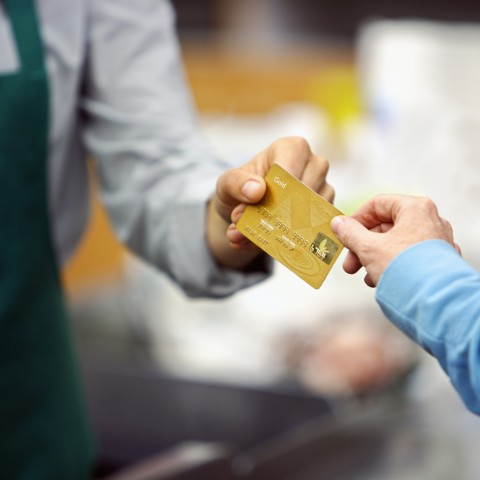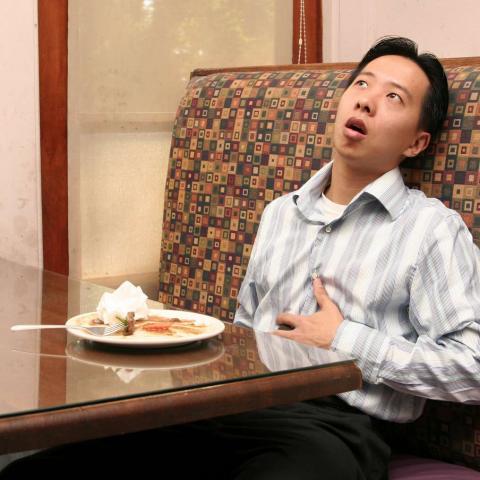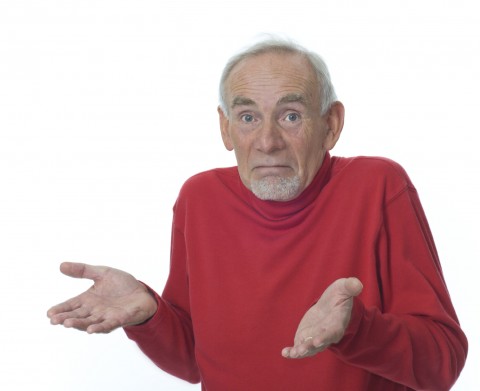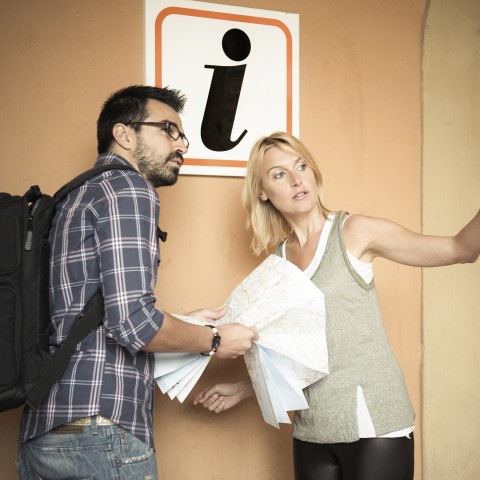
Do you sometimes feel that learning French is no small feat? Sure, the grammar can be intimidating at first, and the pronunciation a little challenging. But there are various ways to conquer these hurdles. One way is to practice using basic French phrases geared toward beginners right from the start.
The traditional academic route has its perks. It has been yielding good results for generations of language learners. But there is only so much to be gained from studying the basic grammar rules, learning lists of elementary vocabulary words, and practicing with written exercises. I believe in a more active approach.
With active learning, you develop the ability to think in French as a subconscious process and overcome the habit of translating everything in your head. How? Through the repetition and imitation of easy phrases with simple structures.
In this article, you’ll find more than 50 phrases every French beginner must know, from simple greetings to polite sentences. We’ll also cover phrases for a variety of common situations such as shopping, eating out, asking for help, or getting directions.

Ils parlent français. (“They speak French.”)
 Table of Contents
Table of Contents
- Greetings and Self-introductions
- Courtesy Phrases
- Shopping
- Eating and Drinking Out
- Lost in Translation
- Asking for Directions
- Getting Out of Trouble
- Le mot de la fin
1. Greetings and Self-introductions
The first beginner phrases anyone gets to use are the greetings. Until you get more experienced, the conversation might not go much further than simple salutations—but you’ll still be making a great first impression.
For any informal encounter, Salut is an amazingly versatile word that works for both “Hello” and “Bye” toward both genders, at any time of day. For anything more formal, Bonjour (“Good day”) and Bonsoir (“Good evening”) are the way to go. Let’s have a look at the finer details.
| Bonjour. [Formal or casual] | Salut. [Casual] |
| Hello. | Hi. |
| Literally: “Good day,” in one word | Literally: Greeting. |
| Bonsoir. [Formal or casual] |
| Good evening. |
| Bonjour monsieur. [Formal] |
| Hello, sir. |
| Bonsoir madame. [Formal] |
| Good evening, madam. |
| Bonjour mademoiselle. [Formal] |
| Hello, miss. |
Then, you may want to ask how they’re doing:
| Comment allez-vous ? [Formal] | Comment ça va ? [Casual] |
| How are you? | |
| Literally: How are you going? | |
| Je vais bien, merci. [Formal] | Ça va. / Ça va bien. [Casual] |
| I’m fine, thank you. | All good. |
| Literally: I’m going well, thank you. | Literally: It goes. / It goes well. |
The common steps when meeting someone in France are rather similar to what you’d expect in any other country: “What’s your name?” and “Where are you from?” are all-time classics.
| Comment vous appelez-vous ? [Formal] | Comment tu t’appelles ? [Casual] |
| What’s your name? | |
| Literally: How do you call yourself? | |
| Je m’appelle Cédric. |
| My name is Cédric. |
| Literally: I call myself Cédric. |
| Enchanté(e). [Formal or casual] |
| Nice to meet you. |
| Literally: Enchanted / Delighted This is an adjective that agrees in gender with the person speaking (the one being delighted). So, if you’re a woman, you would be enchantée; if you’re a man, you would be enchanté. |
| Je suis français. |
| I’m French. |
| J’habite en France. |
| I live in France. |
| J’habite à Paris. |
| I live in Paris. |
| Quel âge avez-vous ? [Formal] | Tu as quel âge ? [Casual] |
| How old are you? | |
| Literally: Which age do you have? | |
| J’ai trente ans. |
| I’m thirty years old. |
| Literally: I have thirty years. |
- → Once you feel comfortable with greeting and asking simple questions, you might want to step up your game and go further with the introductions. Why not have a look at our complete guides on how to say hello and how to introduce yourself?

Salut ! Comment ça va ? (“Hi, how are you doing?”)
2. Courtesy Phrases
Courtesy is the lubricant that makes society run smoothly. It helps ease the friction between people with different cultural backgrounds and values, and it acts as a framework for peaceful social interactions. It may seem forced at times, but especially when meeting new people in a different country, I’d rather appear uptight than rude.
Overall, the French are not especially stiff or overly apologetic. But forget to greet with a Bonjour when you enter a shop, and you’re already losing brownie points.
Below are several beginner phrases in French that you can use to put your best foot forward.
| Excusez-moi.[Formal] | Excuse-moi. [Casual] |
| Excuse me. | |
| This is used to catch someone’s attention before asking for something, or to apologize in advance for an inconvenience. For example: Excusez-moi, est-ce que vous avez l’heure ? (“Excuse me, do you have the time?”) | |
| S’il vous plaît[Formal] | S’il te plaît[Casual] |
| Please | |
| Literally: If it pleases you. | |
| Merci |
| Thank you |
| De rien |
| You’re welcome |
| Literally: Of nothing Even though it’s as commonly used as “you’re welcome,” this phrase is closer to “no problem,” meaning that it was no big deal and there’s no need to thank you. |
- → For more information on French étiquette, you might want to stop by our list of do’s and don’ts when visiting France on FrenchPod101.com.
If you make a mistake despite your best efforts and want to apologize for it, you can keep it simple:
| Pardon. |
| Sorry. |
| Literally: Pardon. |
| Désolé(e). |
| Sorry. |
| Je suis désolé(e). |
| I’m sorry. |
- → A simple pardon might not be enough if you really messed up, but you’ll find everything you need in our extensive guide on how to apologize in French.
As with greetings, you’re expected to say goodbye when you part ways with friends or even people you’ve just met. The same goes for leaving a bank or a shop.
| Au revoir. [Formal] | Salut ! [Casual] |
| Goodbye. | Bye! |
| Literally: Revoir means “to see again” or “to meet again,” so this literally means “Until we meet again.” | Literally: Greetings! |
| À plus tard. [Formal or casual] | À plus ! [Casual] |
| See you later. | See you! |
| Literally: Plus tard means “more late.” So this phrase literally means “Until later.” | This is just a shortened version of à plus tard. |
| À bientôt. |
| See you soon. |
| À demain. |
| See you tomorrow. |
| Bonne chance. |
| Good luck. |
- → With so many ways to say goodbye, it’s good to know that you can find them all in one place. That place would be our article 22 Ways to Say Goodbye in French.

Je suis désolée ! (“I’m sorry!”)
3. Shopping
As you travel through France, you’ll soon enough surrender to the temptation of the many shops, markets, and bakeries. You would then have to test your skills by ordering from unsuspecting clerks who have limited English skills.
First off, let’s be proverbially French and see how to order a buttery croissant:
| Je voudrais un croissant, s’il vous plaît. |
| I’d like a croissant, please. |
| Je voudrais acheter un croissant, s’il vous plaît. |
| I’d like to buy a croissant, please. |
Then, it’s easy to change the number and ask for more:
| Je voudrais deux croissants, s’il vous plaît. |
| I’d like two croissants, please. |
- → If you’re going to the market, make sure you synchronize your grocery list and your flashcards! You can start by studying this list of fruits & vegetables with example sentences and recordings.
Here are a few more common phrases:
| Est-ce que vous avez des croissants, s’il vous plaît ? |
| Do you have croissants, please? |
| Combien coûte un croissant ? |
| How much is a croissant? |
| Literally: How much does a croissant cost? |
| Combien je vous dois ? |
| What do I owe you? |
| Literally: How much do I owe you? |
| Je vais payer par carte. |
| I’ll pay by credit card. |
| Literally: I will pay by card. |
- → Do you need more shopping-related words? Make sure to stop by our free vocabulary list on FrenchPod101.com.

Je vais payer par carte. (“I’ll pay with a credit card.”)
4. Eating and Drinking Out
Now that you’ve passed the trial of shopping, let’s move on to another life-or-death situation: ordering in a restaurant.
| J’ai faim. |
| I’m hungry. |
| Literally: I have hunger. |
| Je voudrais voir la carte. |
| I would like to see the menu. |
| Quel est le plat du jour ? |
| What is today’s special? |
| Literally: What is the dish of the day? |
| Je voudrais une tartiflette, s’il vous plaît. |
| I would like a tartiflette, please. |
| But what’s a tartiflette? Potatoes, fried onions, sliced bacon, with a hint of white wine and garlic. Top it with a thick layer of melted reblochon cheese, and you get one of the most amazing French specialties. Why would anyone order anything else? |
- → Did I successfully whet your appetite? Then I suggest you go and check our in-depth guide to French cuisine on FrenchPod101.com.
| Sur place ou à emporter ? |
| For here or to go? |
| Literally: On the place or to take away? |
| L’addition s’il vous plaît. |
| The bill, please. |
- → You can find many more useful phrases for ordering food on our free vocabulary list, with recorded examples to practice your pronunciation!

L’addition s’il vous plaît ! (“Check, please!”)
5. Lost in Translation
If you’re reading these French beginner phrases, chances are you’re not fluent yet and will likely get a little lost or confused during your visit. That’s perfectly fine, as long as you can explain the situation and move on.
Maybe you want to say that you don’t speak French very well, that you don’t understand, or that you’d like the other party to repeat what they said. It’s better to say it in French, because the longer you keep the conversation going, the more you’ll progress!
| Parlez-vous français ? [Formal] | Tu parles français ? [Casual] |
| Do you speak French? | |
| Je ne parle pas très bien anglais. |
| I don’t speak English very well. |
| Je ne comprends pas. |
| I don’t understand. |
| Comment dit-on “dog” en français ? [Formal] | Comment on dit “dog” en français ? [Casual] |
| How do you say “dog” in French? | |
| Pouvez-vous répéter, s’il vous plaît ? [Formal] | Tu peux répéter ? [Casual] |
| Could you repeat, please? | |
| Pouvez-vous répéter plus lentement ? [Formal] | Tu peux répéter plus lentement ? [Casual] |
| Could you repeat a little slower? | |
| Literally: Can you repeat more slowly? | |

Je ne parle pas anglais. (“I don’t speak English.”)
Something you’re gonna hear often in France. Better be prepared!
6. Asking for Directions
Being lost in translation is one thing, but when you’re stranded in the middle of a large foreign city and don’t know where the nearest bathroom is…this is where you’ll badly need these emergency phrases.
| Excusez-moi, où sont les toilettes ? [Formal] | Où sont les toilettes ? [Casual] |
| Excuse me, where are the toilets? | Where are the toilets? |
| Excusez-moi, je cherche les toilettes. |
| Excuse me, I’m looking for the toilets. |
| Où se trouve la gare Montparnasse ? |
| Where is the Montparnasse Train Station? |
| Je voudrais aller à la gare Montparnasse. |
| I would like to go to the Montparnasse Train Station. |
| Comment aller à la gare Montparnasse ? |
| How can I get to the Montparnasse Train Station? |
| Literally: How to go to the Montparnasse Train Station? |
- → Asking for directions isn’t always as simple as locating the bathroom. In case you ever have to handle something tougher, make sure you come prepared by checking our complete guide to asking for directions in French.

Je cherche la sortie. (“I’m looking for the exit.”)
7. Getting Out of Trouble
There are many other situations where you might get confused. It would be impossible to list them all, but here is a short first-aid kit of questions and statements that could get you out of trouble or help you understand what’s going on.
| Je ne sais pas. |
| I don’t know. |
| Qu’est-ce que c’est ? |
| What is it? |
| Literally: What is it that it is? |
| À quoi ça sert ? |
| What is it for? |
| Literally: To what is it serving? |
| Qu’est-ce qui se passe ? |
| What’s happening? |
| Literally: What is it that is happening? |
| Ça ne fait rien. |
| It’s alright. |
| Literally: It’s not doing anything. |
| Ce n’est pas grave. |
| It doesn’t matter. |
| Literally: It’s not serious/severe. |
| Ne vous en faites pas. [Formal] | Ne t’en fais pas. [Casual] |
| Don’t worry. | |
| This is a complex structure based on the word faire (“to make”) and the pronoun en, which stands for des soucis (“trouble,” “worries”). So, when we say Ne t’en fais pas, we mean Ne te fais pas de soucis. (Literally: “Don’t make worries to yourself.”) | |

Ne t’en fais pas, ça ne fait rien ! (“Don’t worry; it’s alright!”)
8. Le mot de la fin
In this guide, you’ve learned a lot of the most common French phrases for beginners, from greetings and pleasantries to expressions for more specific daily situations. Did I forget any important basic sentences that you know? Feel free to mention them in the comments for your fellow students to see.
Feeling lost or want more practice with the topics we covered today? Then you should head over to our Can-Do French for Absolute Beginners pathway! It features 80 lessons and just over four hours of lesson material covering basic words and phrases you should know when first starting out.
A good way to practice the phrases on this list is to imitate and repeat them, changing words here and there, modifying their structures, or combining them together. Coming up with your own sentences is a fun and rewarding process that you can enjoy even when you’ve just started learning French!
FrenchPod101 also has tons of vocabulary lists with audio recordings and other free resources to boost your studies and keep your French learning fresh and entertaining.
Remember that you can also use our Premium PLUS service, MyTeacher, to get personal 1-on-1 coaching with your own private teacher. They can help you practice beginner phrases and more by providing you with personalized assignments and exercises, not to mention recorded audio samples just for you. Your teacher will review your work and help you improve your pronunciation.
Happy learning on FrenchPod101.com!
About the Author: Born and bred in rainy Northern France, Cyril Danon was bouncing off various jobs before he left everything behind to wander around the wonders of the world. Now, after quenching his wanderlust over the last few years, he’s eager to share his passion for languages.










